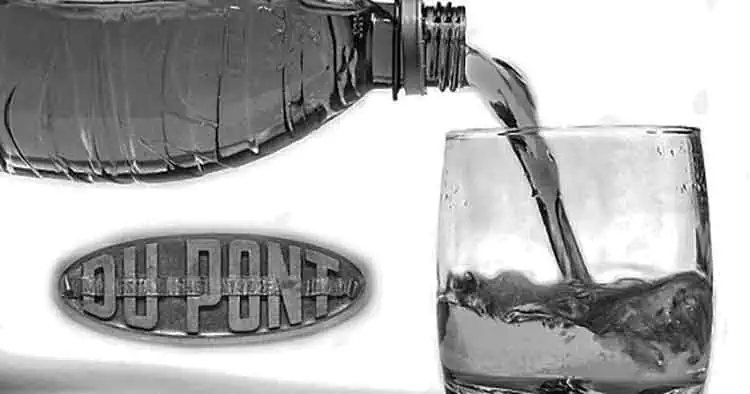DuPont C8 Chemical Dumping Case Gets Punitive Damages Added to Verdict
- Last Updated: August 11th, 2023

Attorney Jessica Paluch-Hoerman, founder of TruLaw, has over 28 years of experience as a personal injury and mass tort attorney, and previously worked as an international tax attorney at Deloitte. Jessie collaborates with attorneys nationwide — enabling her to share reliable, up-to-date legal information with our readers.
Legally Reviewed
This article has been written and reviewed for legal accuracy and clarity by the team of writers and legal experts at TruLaw and is as accurate as possible. This content should not be taken as legal advice from an attorney. If you would like to learn more about our owner and experienced injury lawyer, Jessie Paluch, you can do so here.
Fact-Checked
TruLaw does everything possible to make sure the information in this article is up to date and accurate. If you need specific legal advice about your case, contact us by using the chat on the bottom of this page. This article should not be taken as advice from an attorney.
DuPont C8 Chemical Dumping Case Gets Punitive Damages Added to Verdict
DuPont was ordered by an Ohio federal jury to pay $10.5 million in punitive damages – on top of a previous award of $2 million in compensatory damages – to a man who claimed that DuPont’s chemical dumping from a West Virginia factory on the Ohio River caused his testicular cancer.

The plaintiff alleged that for decades, DuPont has dumped C8, a Teflon manufacturing ingredient, into the air and water, causing a cancer cluster in a number of Ohio water districts.
Two earlier plaintiffs’ verdicts against DuPont are currently on appeal and last October, a jury awarded a woman $1.6 million after she sued DuPont for contaminating the drinking water in a number of Ohio River communities.
Table of Contents
DuPont Lawsuits Centralized in MDL
The DuPont cancer lawsuits have been consolidated into multidistrict litigation (MDL) in U.S. District Court for the Southern District of Ohio, and DuPont is expected to face between 250 and 300 similar lawsuits brought by individuals who are making allegations that they contracted either kidney or testicular cancer from the chemical.
The company used the chemical, which was found in nearby drinking water, despite the knowledge that it was toxic, according to a CNBC report.
Eleven more trials are set for this winter and spring in four different cities.
What is C8?
C8, also known as perfluorooctanoic acid (PFOA) has been used for decades to make Teflon and other stain- and water-resistant products.
According to 2007 data from the Centers for Disease Control and Prevention (CDC), C8 is in an estimated 99.7 percent of Americans’ blood, including newborn babies, breast milk, and umbilical cord blood.
Most peoples’ exposure comes from consumer products like stain-resistant coatings on carpeting and floors, and through multiple drinking water systems in the U.S.
C8 can never be fully removed from all bodies of water and human bloodstreams it now pollutes, never breaks down, and is expected to remain on Earth long after humans are gone.
Scientists have determined that C8 is linked to as many as six diseases, including ulcerative colitis, testicular cancer, elevated cholesterol, pregnancy-induced hypertension, thyroid disease, and kidney cancer.
DuPont and seven other companies stopped making or using C8 in 2015, and the U.S. Food and Drug Administration (FDA) now requires testing for it.

Managing Attorney & Owner
With over 25 years of legal experience, Jessica Paluch-Hoerman is an Illinois lawyer, a CPA, and a mother of three. She spent the first decade of her career working as an international tax attorney at Deloitte.
In 2009, Jessie co-founded her own law firm with her husband – which has scaled to over 30 employees since its conception.
In 2016, Jessie founded TruLaw, which allows her to collaborate with attorneys and legal experts across the United States on a daily basis. This hypervaluable network of experts is what enables her to share the most reliable, accurate, and up-to-date legal information with our readers!
Here, at TruLaw, we’re committed to helping victims get the justice they deserve.
Alongside our partner law firms, we have successfully collected over $3 Billion in verdicts and settlements on behalf of injured individuals.
Would you like our help?
At TruLaw, we fiercely combat corporations that endanger individuals’ well-being. If you’ve suffered injuries and believe these well-funded entities should be held accountable, we’re here for you.
With TruLaw, you gain access to successful and seasoned lawyers who maximize your chances of success. Our lawyers invest in you—they do not receive a dime until your lawsuit reaches a successful resolution!
AFFF Lawsuit claims are being filed against manufacturers of aqueous film-forming foam (AFFF), commonly used in firefighting.
Claims allege that companies such as 3M, DuPont, and Tyco Fire Products failed to adequately warn users about the potential dangers of AFFF exposure — including increased risks of various cancers and diseases.
Depo Provera Lawsuit claims are being filed by individuals who allege they developed meningioma (a type of brain tumor) after receiving Depo-Provera birth control injections.
A 2024 study found that women using Depo-Provera for at least 1 year are five times more likely to develop meningioma brain tumors compared to those not using the drug.
Suboxone Tooth Decay Lawsuit claims are being filed against Indivior, the manufacturer of Suboxone, a medication used to treat opioid addiction.
Claims allege that Indivior failed to adequately warn users about the potential dangers of severe tooth decay and dental injuries associated with Suboxone’s sublingual film version.
Social Media Harm Lawsuits are being filed against social media companies for allegedly causing mental health issues in children and teens.
Claims allege that companies like Meta, Google, ByteDance, and Snap designed addictive platforms that led to anxiety, depression, and other mental health issues without adequately warning users or parents.
Transvaginal Mesh Lawsuits are being filed against manufacturers of transvaginal mesh products used to treat pelvic organ prolapse (POP) and stress urinary incontinence (SUI).
Claims allege that companies like Ethicon, C.R. Bard, and Boston Scientific failed to adequately warn about potential dangers — including erosion, pain, and infection.
Bair Hugger Warming Blanket Lawsuits involve claims against 3M — alleging their surgical warming blankets caused severe infections and complications (particularly in hip and knee replacement surgeries).
Plaintiffs claim 3M failed to warn about potential risks — despite knowing about increased risk of deep joint infections since 2011.
Baby Formula NEC Lawsuit claims are being filed against manufacturers of cow’s milk-based baby formula products.
Claims allege that companies like Abbott Laboratories (Similac) and Mead Johnson & Company (Enfamil) failed to warn about the increased risk of necrotizing enterocolitis (NEC) in premature infants.
Here, at TruLaw, we’re committed to helping victims get the justice they deserve.
Alongside our partner law firms, we have successfully collected over $3 Billion in verdicts and settlements on behalf of injured individuals.
Would you like our help?












